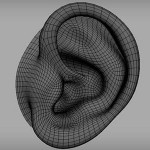Infantile colic can be very stressful for parents whose baby is inconsolable during crying episodes. Colic is often defined by the “rule of three”: crying for more than three hours per day, for more than three days per week, and for longer than three weeks in an infant who is well-fed and otherwise healthy.
Medications available in the United States have not been proved effective in the treatment of colic, and most behavior interventions have not been proved to be more effective than placebo. So what options do parents have?
Pediatric Chiropractic
A recent systemic review published in the Cochrane Library, evaluated the results of studies designed to address the efficacy of hands on therapies (specifically, chiropractic, osteopathy and cranial manipulation) for infantile colic in infants less than six months of age.
The authors concluded that majority of clinical trials seemed to indicate parents of infants using this type of care for colic reported fewer hours of crying per day and was statistically significant. The trials also indicate that a greater proportion of those parents reported improvements that were clinically significant.
George Lewith, MA, DM, FRCP, MRCGP, professor of health research at the University of Southampton commented “the majority of the included trials indicate that the parents of infants receiving manipulative therapies reported fewer hours crying per day than parents whose infants did not. This difference is statistically significant and important for those families who experience this condition. These studies show that in this small sample there were no adverse effects from using these treatments.”
Few parents understand the importance of the brain’s control over the digestive system in their child. The brain controls digestion, along with many other functions, through the Autonomic Nervous System. However, the messages have to travel unimpeded from the head to the body. As a Structural Chiropractor, I know that stressful births (even C-sections) can strain the head and neck (a typical birth can place 60-90 lbs of force onto an infant’s head and neck), causing subtle shifts in the spine leading to interference in the nerve signals between the brain and the digestive system. Early check ups can help prevent structural shifts from becoming a chronic problem.
Probiotics
Research released in 2006 looked at the intestinal flora (bacteria) of both colicky and non-colicky infants. The research found that the colicky infants tended to have less of a type of bacteria called Lactobacillus. Further research released in early 2007 looked at a possible treatment for colic, based on the assumption that decreased Lactobacillus was causing the colic.
The study compared the use of L. Reuteri Probiotics with Simethicone (gas drops). The study showed improvement in 95% of babies treated with L. Reuteri probiotics, as compared with the improvement seen in only 7% of babies treated with gas drops.
Educate Yourself
It is always a good idea to educate yourself before making decisions regarding your child’s health. Once you understand that drugs like Prilosec and Prevacid stunt the development of a newborn’s gastric cells which can lead to chronic malabsorption problems, and that these drugs could make babies more vulnerable to swallowed bacteria usually killed by stomach acid – it becomes a lot easier to make an informed decision. Most importantly, there is no long term study of the results of the current medication schedule for infantile colic.








